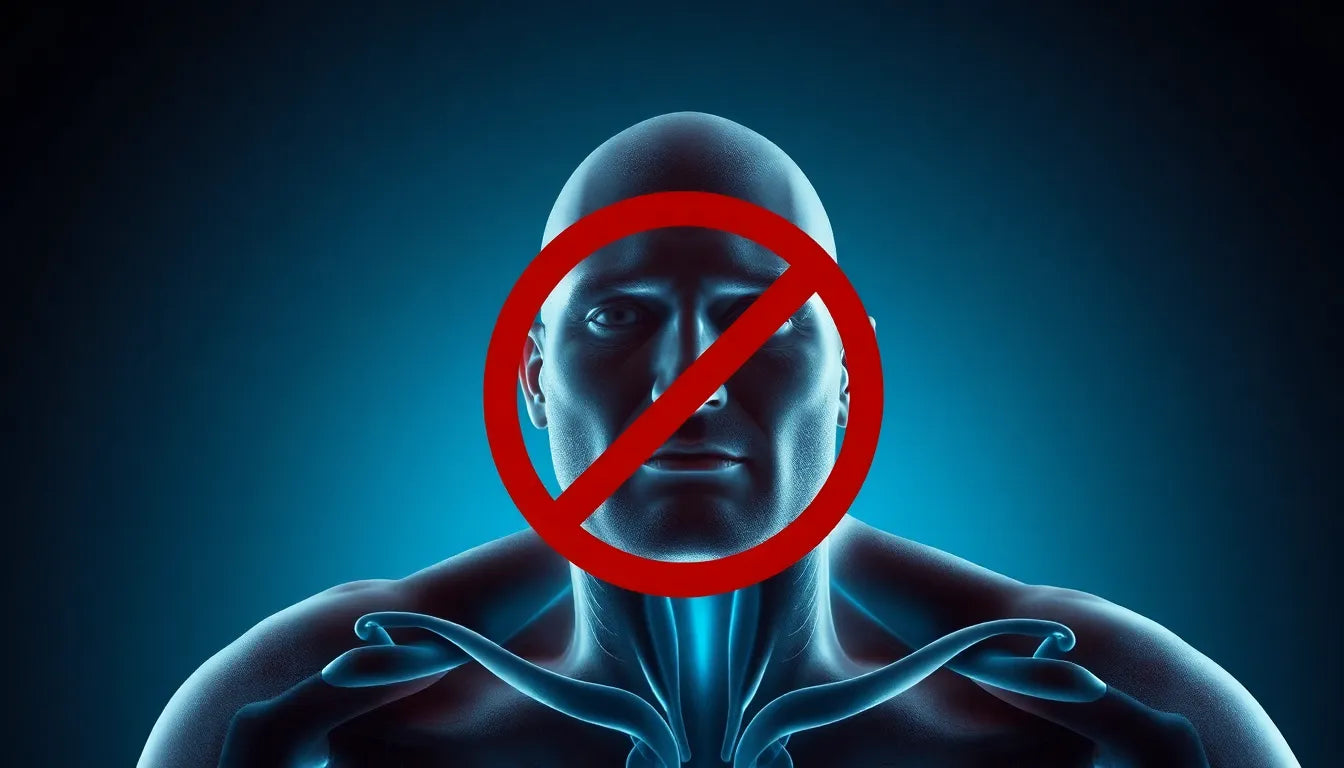Experiencing synkebesvær, or difficulty swallowing, along with neck pain can significantly impact one's daily life and overall well-being. These symptoms are often interconnected, which can make simple activities like eating or speaking a challenge. Understanding the relationship between synkebesvær and neck pain is crucial, as addressing the root causes can lead to improved quality of life and comfort.
understanding synkebesvær and neck pain
Synkebesvær is a condition where swallowing becomes difficult or painful, and it is frequently associated with neck pain. This combination can arise from various factors, including neurological disorders, muscular issues, or as a side effect of treatments such as surgery or radiation therapy. The symptoms can range from mild discomfort to severe pain, making it essential to understand and address these issues promptly.
Common symptoms include pain during swallowing, a sensation of food sticking in the throat, an altered voice after swallowing, and social discomfort during meals. These symptoms can lead to anxiety and avoidance of eating in social settings, further affecting one's emotional and physical health.
common causes and symptoms
Several potential causes can contribute to synkebesvær and neck pain. Neurological disorders, such as a stroke or Parkinson's disease, can disrupt the coordination of muscles involved in swallowing. Muscular issues, like tension or spasms in the neck, can also play a significant role. Additionally, post-treatment effects from surgeries or therapies targeting the head and neck area may lead to these symptoms.
Recognizing the symptoms early is essential to prevent complications such as undernourishment, dehydration, or the risk of aspiration, where food or liquid enters the airway. Early intervention can help manage these risks and improve the overall prognosis.
importance of early diagnosis
Early diagnosis and intervention are critical in managing synkebesvær and neck pain effectively. Timely medical evaluation can help identify the underlying causes and enable healthcare providers to develop a tailored treatment plan. This proactive approach can prevent more severe complications, such as significant weight loss or pneumonia due to aspiration.
Seeking medical advice when experiencing persistent symptoms is vital. Healthcare professionals can conduct clinical assessments and recommend further diagnostic tests, such as endoscopy or video fluoroscopy, to gain a clearer understanding of the issues at hand. Early diagnosis not only helps in managing the condition but also in alleviating the anxiety associated with these symptoms.
medical insights into synkebesvær
When addressing synkebesvær, a comprehensive diagnostic process is essential to pinpoint the exact cause of the swallowing difficulties. This typically involves a combination of clinical assessments and specific tests. An endoscopy, for instance, allows doctors to visually examine the throat and esophagus, while a video fluoroscopy provides a dynamic view of the swallowing process. These diagnostic tools help in identifying structural or functional abnormalities that could be contributing to the symptoms.
In managing synkebesvær, the collaboration of various healthcare professionals is crucial. General practitioners (GPs) often serve as the first point of contact, providing initial evaluations and referrals. Ear, nose, and throat (ENT) specialists bring expertise in diagnosing and treating conditions of the head and neck. Occupational therapists play a vital role in assessing swallowing function and recommending therapeutic exercises. Together, these specialists form a comprehensive treatment plan tailored to the individual's needs.
treatment approaches for synkebesvær and neck pain
addressing underlying causes
Effective treatment of synkebesvær and neck pain begins with addressing the underlying causes. For instance, if an infection is identified as the culprit, appropriate antibiotics or antiviral medications may be prescribed. In cases where acid reflux is contributing to the symptoms, lifestyle changes and medications to reduce stomach acid can be beneficial. Neurological disorders, such as Parkinson's disease, may require specific therapies to improve muscle coordination and swallowing function.
multidisciplinary care
A multidisciplinary approach is often the most effective way to manage synkebesvær and neck pain. Combining medical treatments with physiotherapy or chiropractic care can address both the symptoms and their root causes. Physiotherapists can provide exercises to improve neck mobility and reduce muscle tension, while chiropractors may offer adjustments to alleviate structural issues contributing to pain and discomfort.
dietary adjustments
Dietary modifications are another critical component of managing synkebesvær. Tailoring food and drink choices to the individual's needs can help ease swallowing difficulties. Soft, moist foods are generally easier to swallow and can reduce the risk of choking. It is also important to stay hydrated, as dehydration can exacerbate swallowing problems. Consulting with a dietitian can provide personalized dietary strategies to improve comfort and nutritional intake.
the role of ergonomics and lifestyle changes
Ergonomics and lifestyle modifications can play a significant role in alleviating neck pain and supporting better swallowing function. Simple ergonomic interventions, such as using neck supports or adjusting the height of a computer screen, can improve posture and reduce strain on the neck muscles. Additionally, maintaining a healthy lifestyle with regular exercise and stress management techniques can contribute to overall well-being and reduce the impact of these symptoms.

Women's Posture Shirt™ - Black
Improves posture, relieves tension, and increases postural awareness. Patented tech, medical device.

Men's Posture Shirt™ - Black
Promotes better posture and may relieve neck, shoulder, and back pain. Patented NeuroBand™ tech.
Incorporating these strategies into daily routines can lead to significant improvements in quality of life for individuals experiencing synkebesvær and neck pain. By addressing both the physical and lifestyle factors contributing to these symptoms, individuals can achieve better comfort and functionality in their daily activities.
patient-centric strategies for managing synkebesvær and neck pain
personalized care
Addressing synkebesvær and neck pain effectively requires a personalized approach tailored to each individual's specific needs. This involves a comprehensive evaluation by healthcare providers to create a treatment plan that considers the patient's unique symptoms, lifestyle, and underlying health conditions. Personalized care may include a combination of medical treatments, physical therapy, dietary modifications, and ergonomic adjustments to ensure holistic management of the symptoms.
emotional and social support
The emotional impact of synkebesvær and neck pain should not be underestimated. These conditions can lead to social discomfort, particularly during meals, which can affect a person's mental health and quality of life. Emotional and social support is crucial in managing these aspects. Patients are encouraged to communicate openly with family and friends about their challenges. Support groups or counseling may also provide a safe space to share experiences and coping strategies, reducing feelings of isolation.
practical tips for daily living
home strategies
Implementing practical strategies at home can make a significant difference in managing synkebesvær and neck pain. Simple neck exercises, such as gentle stretches and mobility routines, can help alleviate tension and improve flexibility. Techniques to ease swallowing, like taking smaller bites and chewing thoroughly, can also be beneficial. Keeping the head elevated during meals and staying hydrated are additional strategies that can support better swallowing function.
when to seek medical help
Recognizing when to seek medical attention is vital in preventing complications from synkebesvær and neck pain. If symptoms persist or worsen, or if there are warning signs such as significant weight loss, frequent choking, or persistent pain, it is important to consult a healthcare professional promptly. Early intervention can prevent more serious health issues and provide reassurance through appropriate medical guidance.
Frequently Asked Questions
what are the common causes of synkebesvær and neck pain?
Common causes include neurological disorders, such as stroke or Parkinson's disease, muscular issues like tension or spasms, and post-treatment effects from surgeries or therapies targeting the head and neck area.
how can ergonomic aids help with these issues?
Ergonomic aids, such as neck supports and adjustable chairs, can improve posture and reduce strain on the neck muscles. These adjustments help alleviate discomfort associated with neck pain and can support better swallowing function by maintaining proper alignment.
what dietary changes can assist with swallowing difficulties?
Dietary changes include opting for soft, moist foods that are easier to swallow and staying well-hydrated. It is also beneficial to avoid foods that are hard, sticky, or dry, as they can exacerbate swallowing difficulties. Consulting with a dietitian can provide personalized dietary advice.
when should I consult a doctor for these symptoms?
It is important to consult a doctor if you experience persistent or worsening symptoms, significant weight loss, frequent choking, or persistent pain. These could be signs of underlying health issues that require medical evaluation and intervention.
Kilder
- Mavespecialisten. (n.d.). "Reflux." Mavespecialisten.dk.
- Aarhus Universitetshospital. (n.d.). "Klinik for synkebesvær." Aarhus Universitetshospital.
- Kræftens Bekæmpelse. (n.d.). "Synkebesvær." Cancer.dk.
- Mediq Danmark. (n.d.). "Dysfagi: Alt hvad du behøver at vide om tygge- og synkebesvær." Mediq Danmark.
- Gentofte Hospital. (n.d.). "Dysfagi: Tygge- og synkebesvær." Gentofte Hospital.
- Regionshospitalet Horsens. (n.d.). "Synkefunktion: Problemer med at tygge og synke (dysfagi)." Regionshospitalet Horsens.
- Sundhed.dk. (n.d.). "Synkebesvær, kronisk." Sundhed.dk.


















